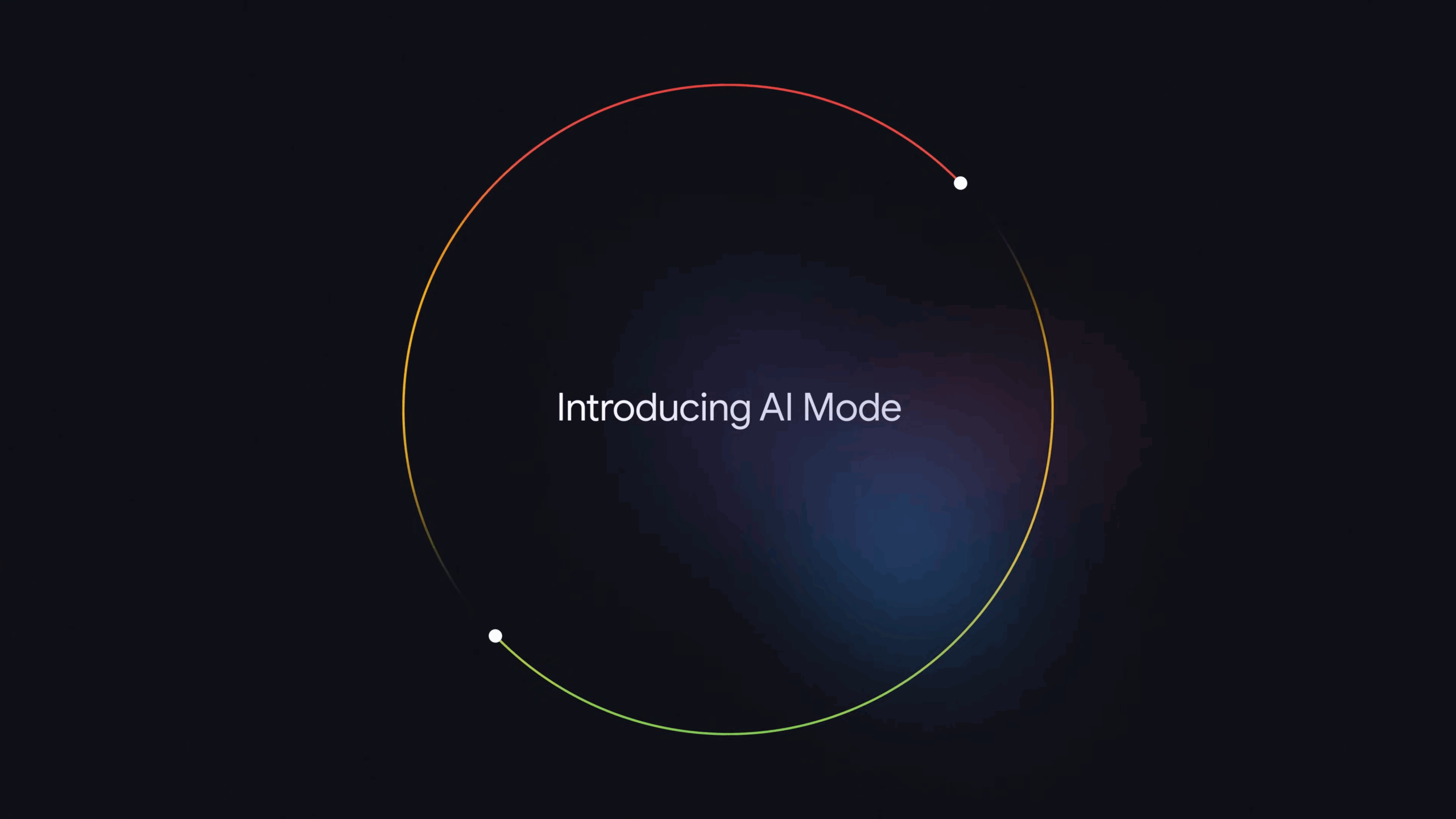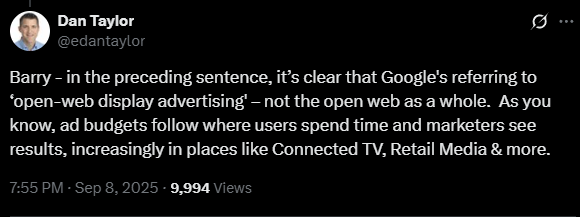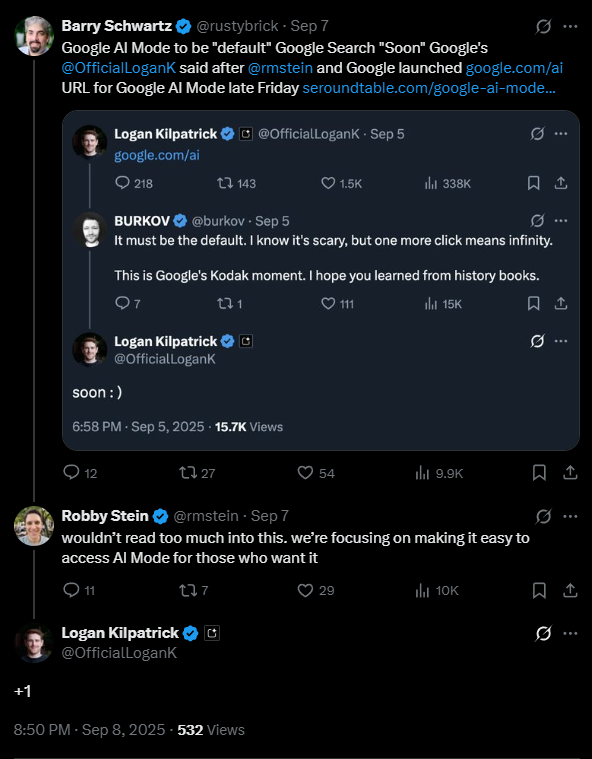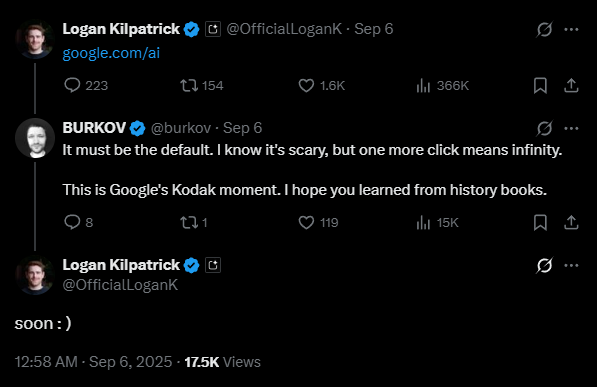Google reframes its statements about the "rapid decline" of the open web

Update –
- Added Google's reframing
Update September 10, 2025:
Google is now reframing its earlier claim that "the open web is already in rapid decline." After the phrase made headlines in a legal filing defending its ad business from a possible breakup (see below), the company is describing it as an oversimplified, out-of-context shorthand. Google manager Dan Taylor says "it's clear that Google's referring to 'open-web display advertising.'" The legal document has since been updated in several places to clarify this point.

A drop in display advertising isn't the same as the decline of the open web itself, but the two are closely connected. Many sites, especially publishers, rely on display ads to stay afloat.
Google Search product manager Robby Stein also stepped in to clarify earlier comments from Logan Kilpatrick, who suggested AI Mode could soon become the default. Stein said the current priority is to make it as easy as possible for users "who want it" to use AI Mode. Kilpatrick agreed with this update.

Original article from September 7, 2025:
Google's AI Mode is set to become the new default as its lawyers call the open web "in rapid decline"
Google Search is on the verge of its biggest overhaul yet, with "AI Mode" poised to become the new default.
AI Mode builds on Google's existing "AI Overviews." Like ChatGPT or Perplexity, it lets users keep chatting with the AI after an initial search, turning Google from a gateway to the web into a closed platform where generative AI is the main focus.
Google product manager Logan Kilpatrick has been hinting on X that AI Mode could soon become the default search experience. For example, google.com/ai now redirects directly to AI Mode, and when users asked for AI Mode to become the default, Kilpatrick replied with "soon : )"

AI Mode has launched in over 180 countries outside the EU, but it hasn't replaced standard search yet. In its latest update, Google added new agent features to AI Mode, allowing users to book local services or buy event tickets directly through the chat interface.
Google's lawyers say "the open web is already in rapid decline"
At the same time, Google's legal team is arguing in a lawsuit over its ad tech division that, "The fact is that today, the open web is already in rapid decline" (via Jason Kint). They claim that breaking up Google's ad business would make things worse, especially as ad dollars are already shifting away from traditional display ads on open websites and toward formats like connected TV, retail media, or what Google calls "enormously popular publishers, such as AI chatbots, who can monetize their display content."
According to Google, forcing a split would only accelerate this shift, pulling resources out of the open web and hurting publishers who depend on that revenue. The company is pushing back against demands in the lawsuit to sell its AdX ad exchange, make its auction logic open source, and give up 50 percent of net revenue. Other proposals would require new rules of conduct and open APIs to rein in Google's market power and increase competition.
The irony is hard to ignore: Google uses the decline of the open web as an argument to position itself as a defender of web publishers, even as it rolls out AI Mode and channels search traffic to its own platform, fueling the very trend it warns against.
In the end, Google is using a problem it played a major role in creating as a reason to fight efforts to break up its business. It's a kind of circular logic that shows up in other contradictory statements from Google executives about how AI search affects the open web.
AI News Without the Hype – Curated by Humans
As a THE DECODER subscriber, you get ad-free reading, our weekly AI newsletter, the exclusive "AI Radar" Frontier Report 6× per year, access to comments, and our complete archive.
Subscribe nowAI news without the hype
Curated by humans.
- Over 20 percent launch discount.
- Read without distractions – no Google ads.
- Access to comments and community discussions.
- Weekly AI newsletter.
- 6 times a year: “AI Radar” – deep dives on key AI topics.
- Up to 25 % off on KI Pro online events.
- Access to our full ten-year archive.
- Get the latest AI news from The Decoder.